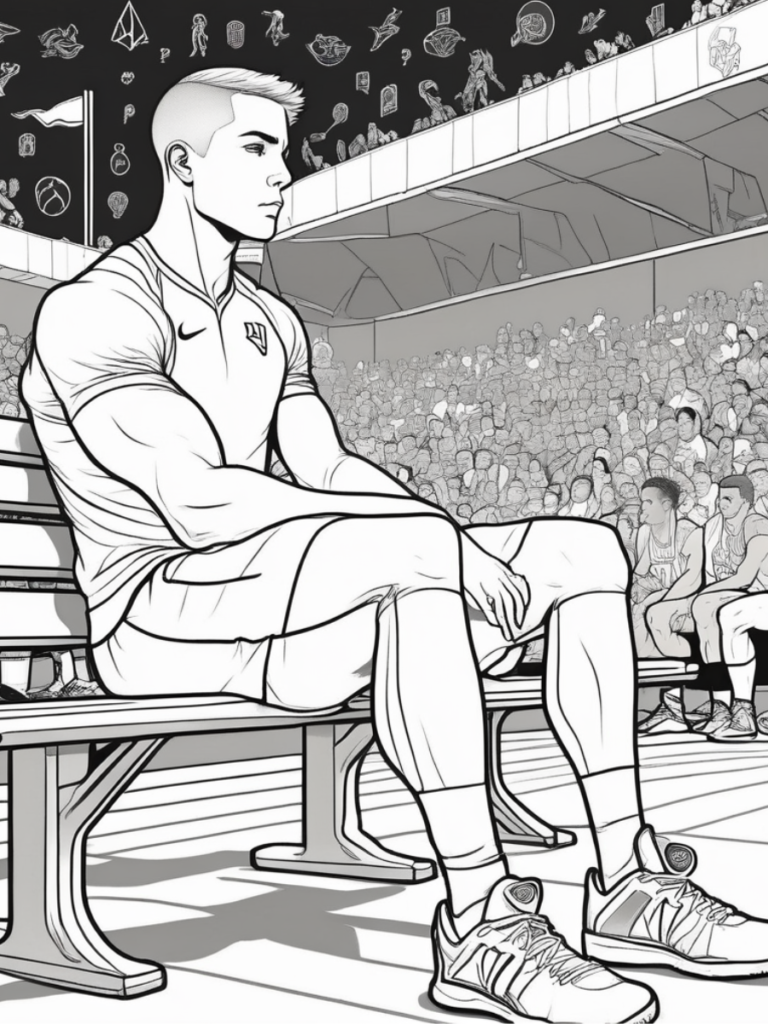
The Silent Opponent: How Comparison Culture Impacts Athlete Mental Health
The roar of the crowd, the glint of the medal, the triumphant fist pump — these are the images we often associate with athletic success. But behind this polished image, many athletes face a quiet but powerful adversary: comparison culture. Whether it’s comparing scores, physiques, or social media followings, athletes today are navigating a relentless tide of pressure that deeply affects their mental health.
In an age where athletic performance is constantly measured, shared, and ranked, this article explores how comparison in sports undermines mental well-being — and what athletes, coaches, and communities can do to shift the narrative toward a healthier, more sustainable path to success.
Understanding Comparison Culture in Sports
Comparison is a natural human instinct. But in the high-performance world of athletics, it becomes amplified, structured, and even institutionalized. Athletes are continuously evaluated through statistics, public rankings, media coverage, and online visibility, turning performance into a constant scoreboard of worth.
There are three key ways comparison shows up in an athlete’s life:
1. Upward vs. Downward Comparison
Upward comparison means looking to someone who seems “better” — faster, stronger, more decorated. While it can spark motivation, it often breeds self-doubt, impostor syndrome, and burnout.
Downward comparison, on the other hand, involves looking at someone perceived as “less successful.” This may boost ego temporarily, but it often leads to complacency or disconnection from teammates.
2. Objective vs. Subjective Comparison
Objective comparisons rely on data: times, wins, stats. These can still be damaging when athletes undervalue personal progress in the face of someone else’s superior numbers.
Subjective comparisons involve less measurable traits — popularity, media coverage, appearance — which are influenced by external opinions and social validation. These are often the most toxic and persistent.
3. Internal vs. External Comparison
Internal comparison focuses on improving past personal performance — a healthy driver of growth.
External comparison is when athletes constantly stack themselves against others, often at the cost of confidence, focus, and enjoyment.
How Social Media and External Pressures Fuel Comparison Culture
Social media is one of the most powerful accelerants of comparison culture in sports. Platforms like Instagram and TikTok are filled with curated highlight reels: perfect routines, flawless physiques, sponsorship deals, and celebratory wins. What athletes rarely show are the struggles, the injuries, or the emotional lows. This creates an illusion of constant success that leaves others feeling inadequate, behind, or unworthy.
Beyond social media, the media’s portrayal of athletes, coaching practices, and even parental expectations can reinforce this harmful mindset. Journalists love building rivalries. Coaches who openly compare players or focus solely on winning can damage team culture. Parents who emphasize being “the best” — rather than doing one’s best — often unknowingly plant the seeds of long-term performance anxiety and perfectionism.
The Mental Health Toll of Constant Comparison
Unchecked comparison can have devastating effects on athletes’ mental well-being. Here’s how:
Anxiety and Depression: Always feeling behind or inadequate can trigger chronic stress and anxiety. The fear of being judged or replaced is a heavy mental load.
Low Self-Esteem: When worth is measured only by medals or metrics, even a minor dip in performance can shatter confidence.
Imposter Syndrome: Athletes may feel like frauds, believing their success isn’t deserved, especially when they see others being celebrated more.
Body Image Issues and Disordered Eating: Constant comparison to others’ bodies can distort self-image and lead to unhealthy habits.
Burnout: The joy of sport fades when athletes are always chasing someone else’s success, not their growth.
Identity Crisis: When an athlete’s identity is tied solely to performance and comparison, injury or retirement can cause deep emotional confusion and loss of purpose.
Strategies to Reduce Comparison Culture in Athletics
While competition is intrinsic to sport, comparison doesn’t have to be corrosive. Here are practical ways to protect and strengthen athlete mental health:
1. Foster a Growth Mindset
Shift the focus from winning to learning. Mistakes become data, not failures. Success is about effort, not outcome.
2. Emphasize Personal Progress
Celebrate individual milestones, personal bests, and self-improvement. Build metrics that reflect growth, not just comparison.
3. Encourage Self-Awareness and Compassion
Help athletes become aware of their inner critic. Teach them to talk to themselves the way they would a teammate — with empathy and encouragement.
4. Create a Supportive Culture
Coaches, parents, and teammates should model encouragement over comparison and cultivate spaces where athletes feel valued beyond their stats.
5. Set Healthy Boundaries with Social Media
Encourage mindful use of platforms. Unfollow toxic accounts, take digital detoxes, and remember that not everything online is real.
6. Promote Access to Mental Health Resources
Normalize therapy. Encourage regular check-ins with counselors, sports psychologists, or mental performance coaches. Mental fitness deserves the same investment as physical training.
Conclusion: Building a Stronger, Healthier Athletic Culture
Comparison culture in athletics isn’t just a passing trend — it’s a deeply ingrained mindset that can quietly undermine even the most successful athletes. But by recognizing this silent opponent and addressing the factors that fuel it, we can foster a culture of personal growth, emotional resilience, and true performance.
It’s time we redefine success in sports: not as a race to be better than others but as a commitment to becoming our best selves, with joy, balance, and well-being leading the way.
Join the Champion's Circle: Athlete Growth Hub!
Ready to take your athletic performance to the next level? Join the Champion's Circle: Athlete Growth Hub, where driven athletes come together to share insights, stay motivated, and elevate their game. Gain access to expert advice, exclusive content, and a supportive community that will help you crush your goals. Don’t miss out—unlock your potential and start growing today!
Join NowReady to take your game to the next level? 🚀 Book your free consultation today and discover how personalized coaching can help you reach your goals faster and more effectively. Don’t wait—let’s start your journey to success now! Click the link to schedule your session and unlock your full potential. 💪✨


